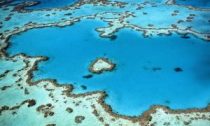
Nearly all corals on a reef at Lizard Island in Australia are dead following one of the worst mass bleaching events the world’s largest coral reef system has ever endured, new drone imagery has revealed. Scientists from Macquarie University, James Cook University, and GeoNadir first mapped the area around Lizard Island in March 2024 and repeated the survey this month. The imagery they collected revealed that at least 97% of the reef had died amid record-breaking sea surface temperatures.
“This is not pretty but I will not apologise for the data. Suck up the discomfort. When is enough enough?” Dr. Karen Joyce, one of the scientists behind the discovery, wrote on X.
In April, the US National Oceanic and Atmospheric Administration’s (NOAA) and the International Coral Reef Initiative (ICRI) – a partnership of 101 international nations and countries to perverse reefs around the world – confirmed that the world is undergoing its fourth global coral bleaching event, the second in the past ten years.
The event is directly related to rising sea surface temperatures, which in June broke yet another record for the month for the fourteenth month in a row. Seas warmed last year in response to the return of El Niño, a weather pattern associated with the unusual warming of surface waters in the eastern equatorial Pacific Ocean. However, the trend has continued well into 2024, despite signs that El Niño is gradually weakening.
Coral bleaching is a phenomenon in which coral reefs expel the microscopic marine algae called zooxanthellae that live in their tissues when under stress – be it heat, ocean acidification, or human activity. As a result, coral tissues become transparent and lose their signature vibrant colours, exposing their white exoskeleton underneath.
While bleaching does not mean that the corals have died, it increases their vulnerability to marine disease and starvation, which could eventually lead to mortality. The longer corals are bleached under various stresses, the more difficult it will be for algae to return, making it impossible for reefs to be revived.
Coral reefs are extremely important ecosystems that exist in more than 100 countries and territories and support at least 25% of marine species; they are integral to sustaining Earth’s vast and interconnected web of marine biodiversity and provide ecosystem services valued up to $9.9 trillion annually. They are sometimes referred to as “rainforests of the sea” for their ability to act as carbon sinks by absorbing the excess carbon dioxide in the water.
Unfortunately, reefs are disappearing at an alarming pace. According to the most recent report by the Global Coral Reef Monitoring Network (GCRMN), the world has lost approximately 14% of corals since 2009.
While coral bleaching can be a natural process that occurs due to rising oceans temperatures in the summer months or during natural weather phenomena such as El Niño, a rise in marine heatwaves linked to human activities has led to more frequent and larger bleaching events globally.
One of the best examples of coral bleaching is the Great Barrier Reef, the world’s largest and longest reef system located off the coast of Queensland, Australia; it covers about 350,000 square kilometres – an area that is larger than the UK and Ireland combined. The stunning coral reef system has already suffered six mass bleaching events in 1998, 2002, 2016, 2017, 2020, and 2024. The events in 2016 and 2017 were so severe that they led to the death of 50% of the iconic reef.

Aside from Australia, coral death has been particularly pronounced in regions such as South Asia, the Pacific, East Asia, the Western Indian Ocean, The Gulf, and Gulf of Oman.
Earlier this week, UNESCO urged Australia to set more ambitious targets to protect the Great Barrier Reef, expressing “utmost concern” at the recent bleaching event.










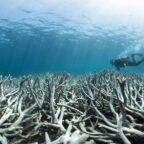
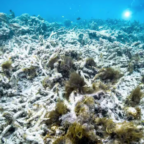
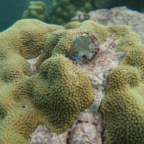
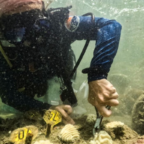

Social Profiles